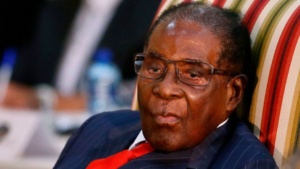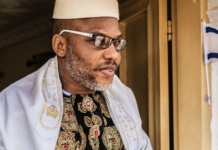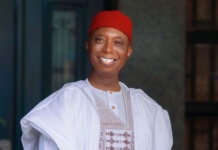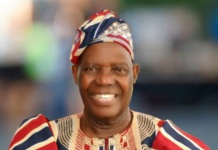Peter Olorunnisomo – The ripples of the Zimbabwean political currents remained ripples to the amazement of the world. It was becoming quite the expectation, particularly in view of recent political upheavals of the same theme in Togo, Cameroon, etc. The Mugabe of Zimbabwe became a political enigma of sorts to the west while the man prided himself on his intellectuality of western education and African culture, breeding a patriotism that was purified by the fire of the political struggles in Southern Africa.

It was, perhaps, this fire of ‘patriotism’ that spread through the landscape of African states by those agitators for whom individual recompense for political persecution is the latitude to be ‘best’ and know ‘best’ and take ‘best’ even what the land cannot offer. Most African zealots, therefore, hold that the west sees the governmental change of the ‘stooges’ of independence by military takeovers as synonymous with anti-democratic governance in Africa.
Just as the people are maturing on their expectation of government responsibilities and deliverables, so are they also keenly educated on the expected roles and failures of political leaderships. The African societies are evolving.
Significantly, the African Union has welcomed Robert Mugabe’s decision to step down as president of Zimbabwe, saying the people had expressed their will for a “peaceful transfer of power.”
Despite the military intervention, the AU did not characterise Mugabe’s ouster as a coup, but rather a legitimate expression of the will of Zimbabweans. This was an intervention that allowed free flow of movement and there was no report of anyone being killed or radio cum television stations taken over with martial music for public entertainment.
The military claimed it was not a coup. But that would hardly have rested well had Robert Mugabe been a ‘friend’ rather than a ‘fiend’ of western nations who have also tried to bring him to his knees economically while the rest of the Zimbabwean nation stood tall.
The African Union leadership, speaking, noted that “President Mugabe will be remembered as a fearless pan-Africanist liberation fighter and the father of the independent Zimbabwean nation. Today’s decision will go down in history as an act of statesmanship that can only bolster President Mugabe’s political legacy.
“The African Union recognizes that the Zimbabwean people have expressed their will that there should be a peaceful transfer of power in a manner that secures the democratic future of their country. President Mugabe’s decision to resign paves the way for a transition process, owned and led by the sovereign people of Zimbabwe.
“Throughout the years, the people of Zimbabwe have demonstrated remarkable resilience and resourcefulness, and commitment to their country. The Chairperson of the Commission is confident that they, together with all their leaders, will remain steadfast in their commitment to fulfil their legitimate aspirations,” the statement read in part.
After dominating nearly every aspect of Zimbabwean public life for decades, the 93-year-old’s tenure on Tuesday ended in an announcement at a special joint session of Parliament where MPs had convened to impeach Mugabe after the ruling party sacked him as their leader earlier this week.
The encomiums on Mugabe’s statesmanship lend lessons to African leaders aged with the comforts of leadership but bogged with the requisite savvy needed to tackle the evolving dynamics of contemporary governance and political responsibilities.
From the fall of Adam through the role of Delilah in Samson’s politics and verily so, Macbeth, has the lessons of deft and delicate, political incursions by the ‘other half’ been taught. Without infringing on the sympathies of the feminists, it is instructive that a democratically endowed political office is answerable by only one person and it thus becomes an acceptable aberration to create a second office by whim that challenges a constitutionally vested second official.
The Zimbabwean military has re-defined the concept of a coup and a clarification of an intervention from a democratic point of view. The government of the people, for the people, by the people, also includes soldiers but the prospects of bloodshed in the expression of the people’s will to check an administration, albeit, unconstitutionally is the greater ‘silencer’ of the western nations who Mugabe saw as equals.
Mugabe is to be replaced by Emmerson Mnangagwa, the former ousted vice president.








